CoreLogic’s daily dwelling values index, which measures price changes across the five major capital city markets, rose another 0.22% in the week ended 7 September.
That was the 27th consecutive weekly increase in dwelling values:
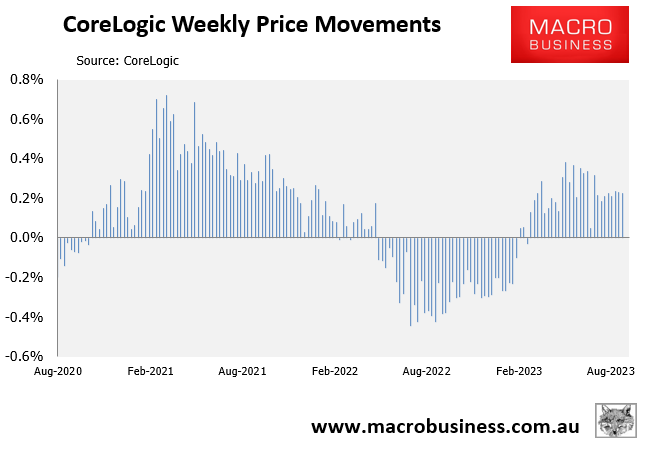
This week’s rise was broad-based, with four of the major capitals recording rises of 0.2% or more:
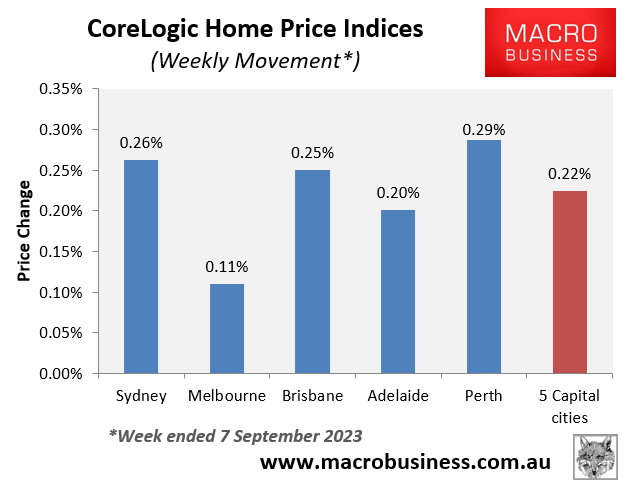
Over the latest quarter, dwelling values at the 5-city aggregate level have risen by 3.2%, with Brisbane (4.2%) and Sydney (3.8%) leading the way:
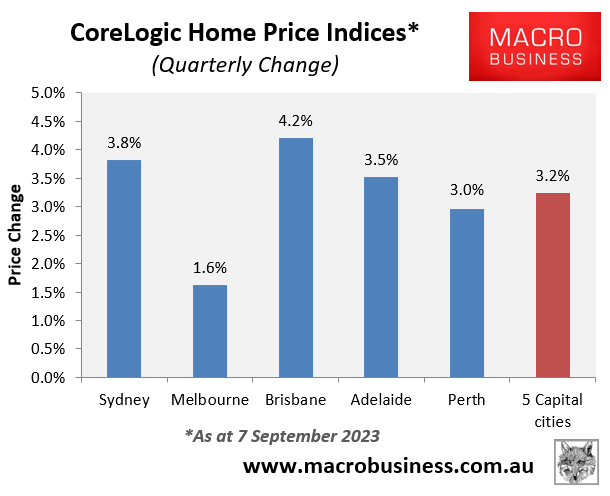
Finally, home values have rebounded 6.6% from their 7 February low at the 5-city aggregate level, driven overwhelmingly by a strong 9.2% rebound in Sydney:
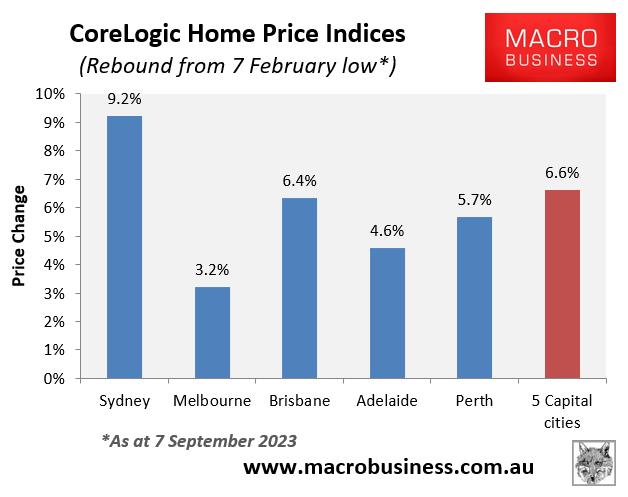
Mark Bouris, chair of Yellow Brick Road, described the house price rebound as baffling given it has coincided with another 100 basis points of interest rate hikes between February and June:
“I’ve been around for a long time and I’ve never seen interest rates rise as quickly as we’ve seen in the past year, without adversely impacting house prices”.
“Based on previous cycles, I expected house prices to cave in, which they did initially”.
“What surprised me is the lack of properties that have been put on the market for sale, which is the main thing that spurred the recovery”.
“The lack of supply tells me that people don’t have to sell because they still have a job, and as a result of not having to sell, higher interest rates haven’t yet put pressure on prices.”
Bouris is not wrong. The recovery in Australian home prices has been extremely unusual given that it has taken place in the midst of falling sales volumes, rising interest rates, and declining borrowing capacity.
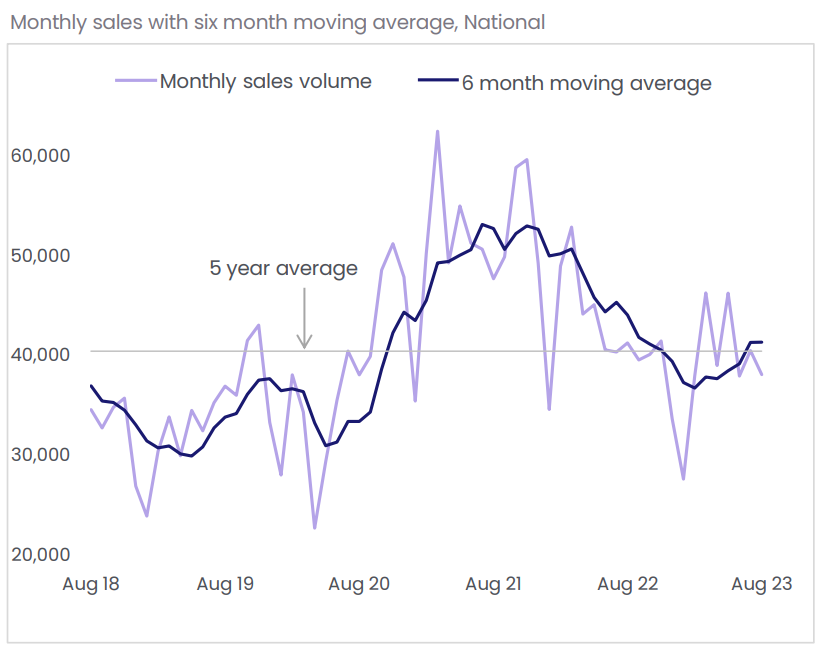
Source: CoreLogic
According to AMP chief economist, Shane Oliver, borrowing capacity has decreased by around 30%, which should have resulted in significant price decreases:

Moreover, increases in interest rates are typically associated with falling home prices:

Prices are being supported by record levels of immigration, acute rental shortages, rapid rent increases, and constrained supply.
Once the RBA does begin cutting interest rates, the market could take off.

